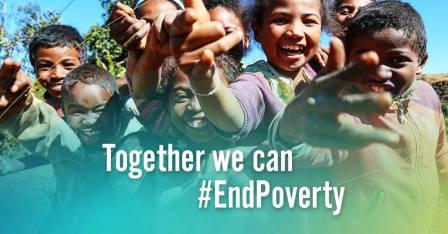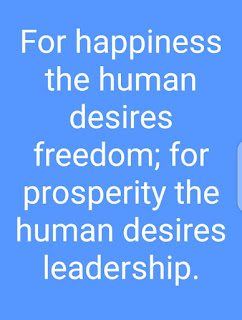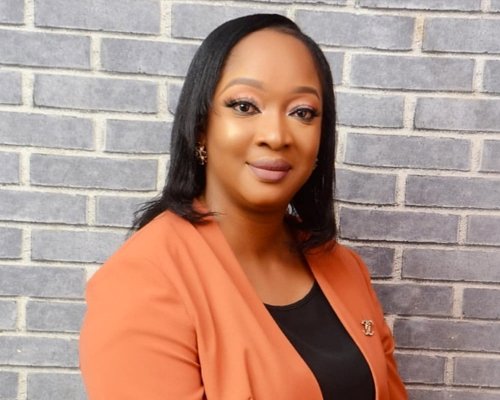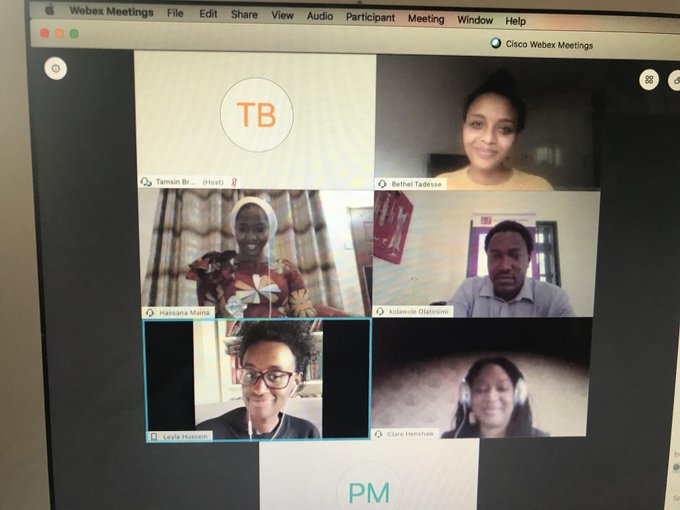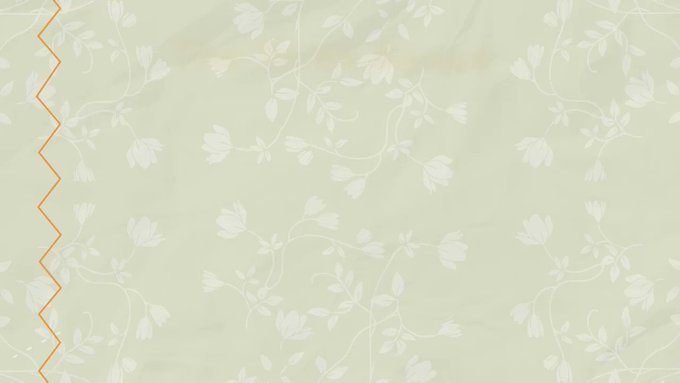Why Global Citizens Should Care
The UN's Global Goal 5 aims to end gender inequality in all its forms. However, the COVID-19 pandemic has undone much positive progress, with widespread reports of domestic abuse, female genital mutilation (FGM), and further gender violence only getting worse amid lockdowns. Take action to protect marginalised communities from coronavirus by joining our Global Goal: Unite for Our Future campaign here.
Since the start of the COVID-19 pandemic, anti-FGM campaigners Dr. Leyla Hussein OBE and Bethel Tadesse have been hosting webinars and online support groups from their base in London for grassroots activists working to end violence against girls and women all over the world.
During these sessions they have heard the struggles of those facing increased violence and abuse, and the hardships and challenges of the activists working against it.
In this article contributed by Hussein and Tadesse, they share some of the stories (with permission) from the activists working on the ground tackling sexual violence in the most challenging of circumstances. Learn their names: Bernice Ede, Jeremiah Kipainoi, Clare Henshaw, and Ruth Kilimo.
Editor’s note: This article contains details of sexual and gender-based violence.
“I was raped by my 17-year-old brother. He also raped my younger sister.”
This is a sentence most of us thankfully rarely read, let alone hear directly from a traumatised young girl, telling her story for the first time. But stories like this are a daily reality for activists all over the world.
Grassroots activists — meaning those working directly with people on the ground — are some of the most underrated and undervalued members of our societies. That’s especially true for those working with the most vulnerable girls.
They wake up every morning to rescue girls from abuse, go door-to-door to educate people on different issues, and spend their own money to feed the less fortunate. They are almost always underfunded and underappreciated.
In conversation with four activists from Nigeria and Kenya, we had heard that life was already hard for many women and girls — and the COVID-19 crisis has made this worse.
Most countries have asked people to stay at home, many have shut their borders, and some have enforced curfews. Many are not able to work and earn money either, which puts huge pressure on families and communities, especially where poverty is already an issue.
In times of crisis women and girls are often vulnerable while violence against them increases. This is compounded in this crisis as many of the usual sources of help are absent. Government offices are closed or focused on managing the impact of coronavirus. Non-governmental organisations (NGOs) and charities have been forced to cease operations. Safehouses and rescue centres have been closed.
Child abuse and sexual violence against girls is a global stain on our world. It was already difficult for activists to protect those most at risk before the pandemic — and now it is even harder. We wrote this article because we want you to hear about some of these unsung heroes, empower their voices, highlight their concerns, and illuminate ways that you can help them.
Clare’s Story
Clare Henshaw lives in Lagos State, Nigeria, working as a development professional for almost 15 years. She has an MBA and degree in computer science, and is a passionate advocate for all issues concerning women’s health, education, and abuse.
While Clare worked as a mentor to young girls, she realised many were struggling with issues relating to abuse, sex, and abortion, but did not have a safe space to discuss them without judgment. That’s why she founded i-Safe Consulting & Girls Inspired Africa, an organisation that focuses on rape prevention and combating the misconceptions associated with rape. It also aims to teach girls practical self-defence skills and build self-confidence.
Many of the women Clare has been working with during lockdown are concerned about lack of food, finances, and increasing violence. There is a lot of hopelessness and uncertainty. Clare feels lucky that at the moment she still has an income of her own and has been able to continue her work supporting others. But she still worries. She has nightmares about the situation and what would happen if a donor decided to stop funding her work.
Clare is trying to help other women find ways to support themselves financially. Her own mother, for example, has made 10,000 face masks in one month — and teaches others how to do the same as a way of generating income.
But one of the issues Clare is most concerned about is the plight of girls without family support. They may be alone or in a situation where the family is in survival mode, without income or food. She is hearing about young girls being used for sex by older men. There are reports of girls with sugar daddies or boyfriends who give them food or money.
It is frightening how vulnerable the girls are to this criminal exploitation. Clare also told us that she is worried there will be an increase in pregnancies as a result of this lockdown since there is often no access to contraception and family planning.
She gives an example of how in December 2019 she had a 14-year-old girl in one of her support groups who suddenly stopped going to the sessions. When they checked up on her, Clare discovered that she was pregnant and that she had been having sex because she was hungry and the man would buy her food. She didn't know that what had happened to her was a crime.
Clare is also hearing more cases of sexual abuse within families. During lockdown people are crowded together in small homes. She knows of one case where a 17-year-old boy impregnated his two sisters. They were all living together and sleeping in one room.
One of Clare’s major challenges is figuring out how she can reach girls and women in need and support them without breaking the lockdown laws and while also keeping herself safe. Many of them do not use phones as they don’t have the finances to buy data or smartphones. They are isolated and often forced to stay in unsafe situations.
Clare admits that there are days that she doesn’t feel like working, but she reminds herself that she is lucky to have work that is still providing some income. But this also gives her a sense of guilt that sometimes pushes her to throw herself too completely into her work and not prioritise herself and her mental health.
Clare says that she finds hope by keeping in mind that the world has survived pandemics before and other difficult challenges and that we are still here. She is thankful for the good friends and family she has in her life. She also draws her inspiration from the idea that it is in the many moments of humanity during the crisis from which the world draws its strength.
Bernice’s Story
Bernice Ede, 52, is from Nigeria. She works with a Nigerian tourism development corporation, run by the Nigerian government, and founded the Pukiche Girl Child Foundation to help young girls who have suffered abuse. A survivor of physical abuse herself, she has also studied as a mental health counsellor. In her foundation, she provides training, skills, and school fees for 20 young girls so they can be empowered to continue their education.
Bernice has found that lockdown has put more girls at risk of sexual abuse, while making it harder to get help. That abuse is often from within the family. Girls are less protected while they are not at school, and are often expected to carry out physical labour at home.
As the crisis continues, Bernice is finding that people’s main concerns are money and food — so she’s been busy providing raw and cooked food to her community. She says it makes her happy to serve people and see people happy when their needs are being met. But more needs to be done so that people can support themselves.
Bernice states that the most urgent need for her community is sustainable finance, including support for girls and women to develop skills to join the workforce. There also needs to be more education about sexual abuse and programmes to support survivors and tackle stigma.
In the early weeks of the COVID-19 crisis, Bernice made the most of having more time to spend reading online and being at home with her family. As it continues things are getting more difficult for her and for her community. She has found hope through her faith and continues to use prayer as a means to restore herself.
Jeremiah’s Story
Jeremiah Kipainoi, 27, has a journalism background. He currently works as a communications consultant, runs a webinar called End FGM Live, and produces an End FGM podcast — amplifying activsts in 22 counties in Kenya known as FGM hotspots, giving a voice to many people left without the ability to communicate via Zoom or similar technologies.
The most urgent concern for him is how we protect and invest in activists so that they can continue their work through the COVID-19 crisis and beyond. Lockdown, curfews, and new laws limiting social freedom have changed how we hold the powerful to account, threatening democracy. We need to hear activists’ voices because they are the ones keeping the government in check.
Many girls’ lives will be at risk if the activists are silenced. He would like us to think about how we can enable activists to be part of traditional media such as radio and TV shows. We need to retain activists, he insists, and find ways to keep them motivated. Activists were struggling before the pandemic and even more so now.
Jeremiah finds hope from seeing so many people doing things to help others in this crisis, like people making videos showing how to wash your hands. He’s so proud of his parents, adapting to using social media to stay in contact. There’s a real sense of community.
Ruth’s Story
Ruth Kilimo co-founded Marakwet Girls Foundation, a community-based organisation that works with young girls to campaign against FGM and other forms of violence against women. In 2018, she was awarded the End FGM Female Champion of the Year Award presented by the Kenyan Anti-FGM Board.
During the pandemic, Ruth returned home to her village in Elgeyo-Marakwet County, and felt upset and disorientated. So many things had changed and her work became very difficult. Life in the village felt completely different: people are much more isolated. There was also a landslide recently where hundreds of people died, devastating many members of her community.
Ruth’s focus is currently on young girls with parents who don't have the ability or finances to feed their children. Normally, FGM ceremonies happen when school is closed for a month or two and the girls are in the house. Ruth suspects more girls are being cut because they’re at home and can’t work.
Many safe houses and refuges have closed, an important protection for some of the most vulnerable girls in rural areas. There are fewer social workers and law enforcement officers visiting in the community too, while community outreach programmes have been suspended. She’s scared that girls are therefore being cut in secret.
Ruth calls friends every Wednesday to talk about how difficult life is right now. It helps her to have something to look forward to each week and she tries to help others on the calls too. She lives one day at a time — attempting to practice patience, reckoning with feelings of guilt, working with little energy. She is hopeful that as lockdown eases she will be able to do more work and help the girls who have suffered.
You can help support grassroots organisations and activists like these by donating to Hidden Scars Magool on GoFundMe, hosted by two anti-FGM social enterprises: the Hidden Scars Project, established by Bethel Tadesse to protect frontline workers fighting to end violence against women and girls, and Magool, a support network founded by Dr. Leyla Hussein OBE to ensure survivors of oppression and abuse receive specialised support and services.
Join the movement to help combat the disproportionate impact COVID-19 has on marginalised communities — including people of colour, those living in extreme poverty, and others facing discrimination — by taking action here to support the Global Goal: Unite for Our Future campaign. For more information on COVID-19, the efforts to combat it, and how it impacts vulnerable communities around the world, read our coverage of the pandemic here.






